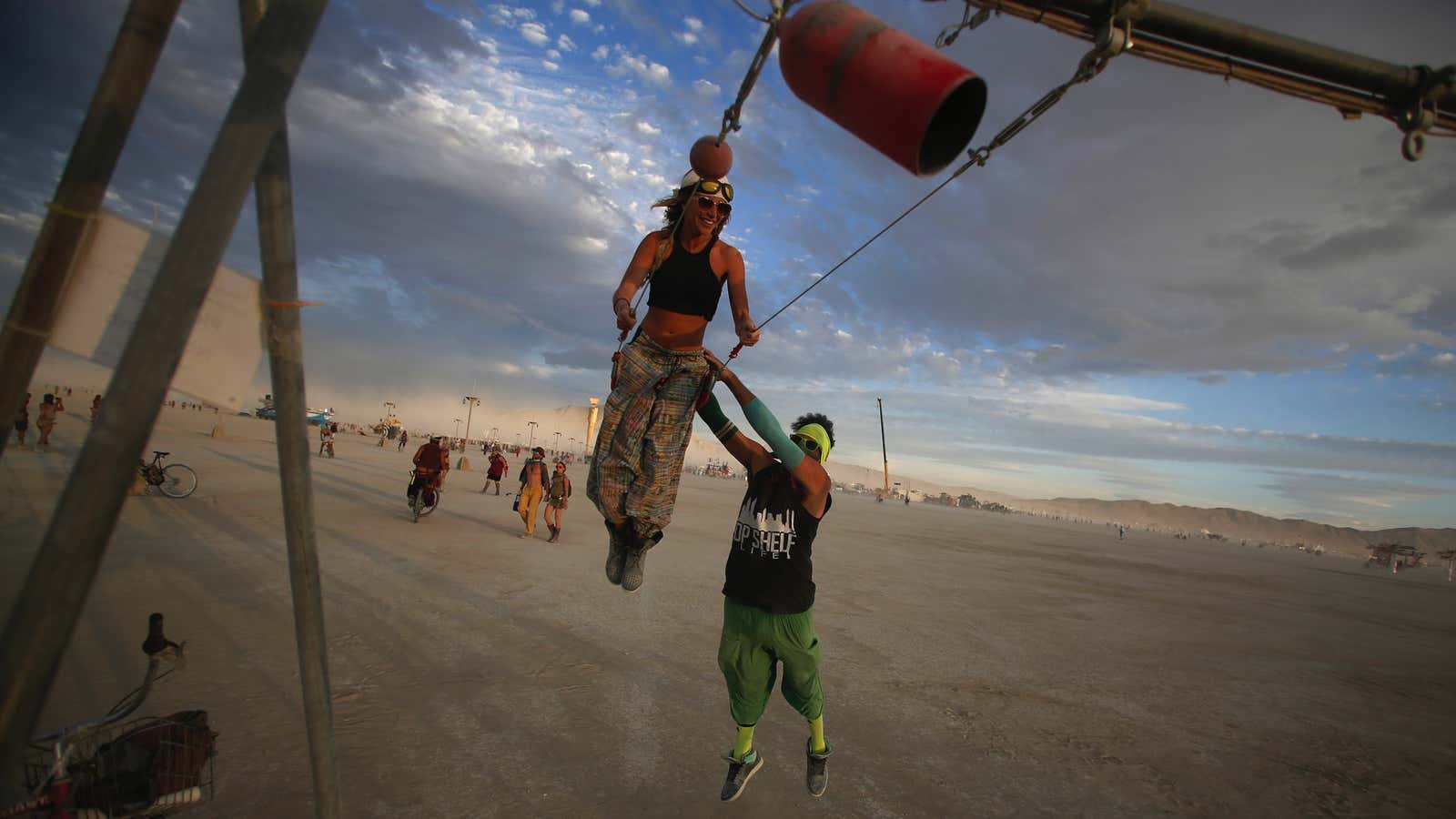Home Depot is cashing in on the annual Burning Man festival, where 65,000 hipsters and tech glitterati flock to the Nevada desert for music, art, drugs, and a frenzy of togetherness.
Since burners have to build their own camps from scratch in the annual festival’s spirit of self-reliance (or, less self-reliantly, pay someone else to do it), many flock to Home Depot, Target, Walmart, and other retailers on the way to the desert to pick up generators, dust masks and, as it turns out, a whole lot of rubber bands.
Home Depot said its Nevada stores sell 13,000 packages of rubber bands in the days leading up to the mega party, a big jump from 450 packages the typical Nevada store sells each week. Many burners use rubber bands to keep things from flying away in the wicked desert winds (and they also come in handy for rubber band balls, tie-die clothing, and hair braiding).
Likewise, Home Depot sells more than 126,000 square feet of tarps before Burning Man, up from the 25,000 square feet of tarps it sells on an average week.
Rebar, wood, and tarps are also hot commodities for burners erecting the massive, awe-inspiring art installations that adorn the desert campground and are burned at the end of the event.
Shopping tends to be concentrated at the last stops for stocking up near the site of the festival, says Gregory Hart, the South Reno Home Depot store manager. “On their way out to the desert, people will stop in our stores in Reno, Carson City and a few near Black Rock Desert,” he said.
Stores stock up on everything from dust masks to glow-in-the-dark and florescent spray paint (take your pick of pink, yellow, orange or green).
So even though Burning Man is billed as an escape from modern-day capitalism, where people bring their own housing and food, money doesn’t change hands, and people gift things or barter with one another, the event still offers a seasonal windfall to a number of major American corporations.




